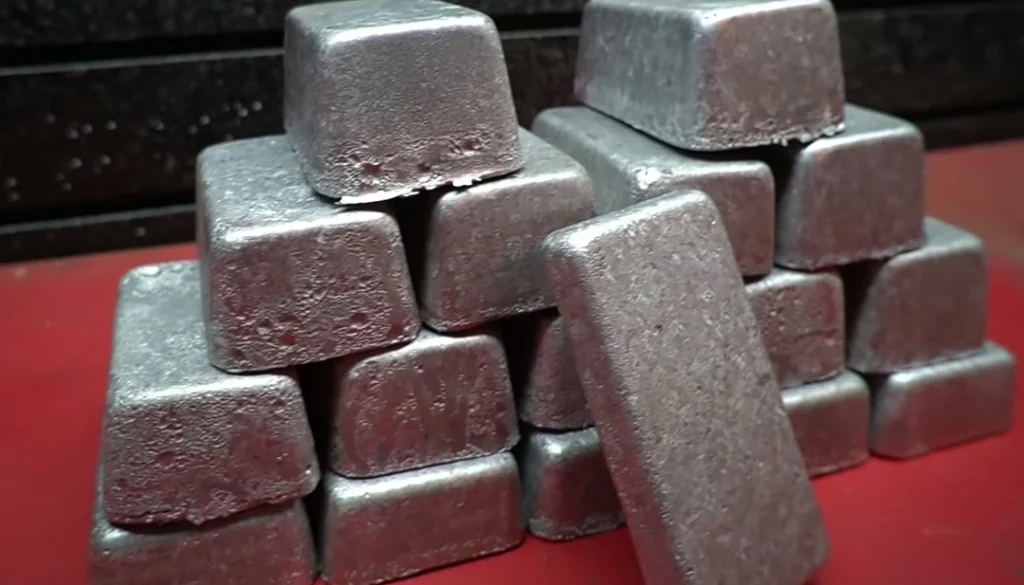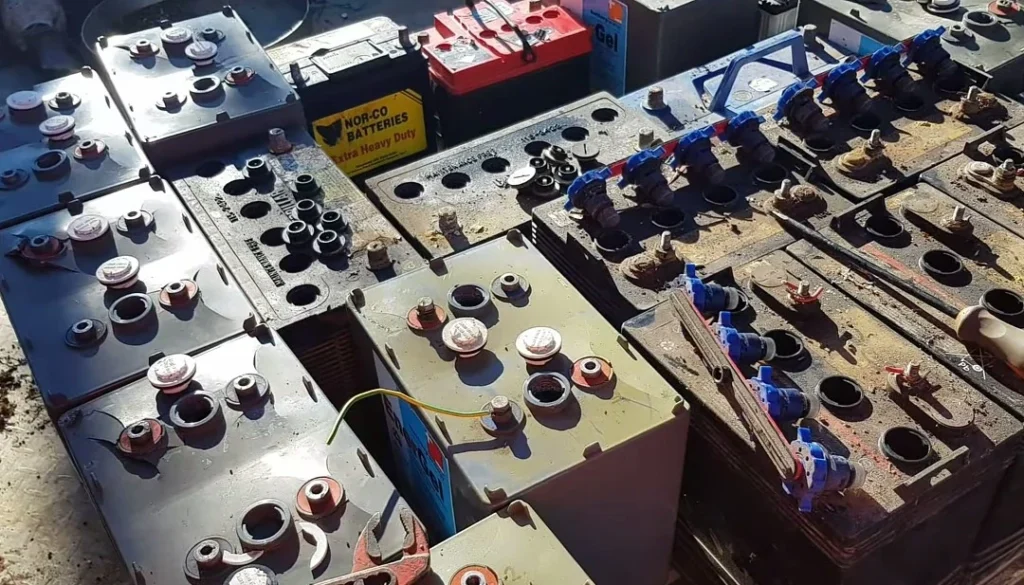Scrap Lead Prices UK
The use of lead is widespread throughout the world. Lead is an essential element for batteries. Used and expired batteries are a major source of lead scrap. Here we discuss scrap lead prices in UK in detail. Lead prices are influenced by various factors, such as supply and demand, transportation costs, global economic impact, etc. Our primary objective is to provide authentic lead metal base rates on market trends.
Mix Lead
£ 0.81 – 0.96 Per Kg
Lead Battery
£ 0.89 – 1.00 Per Kg
Lead Acid Battery
£ 0.85 – 0.96 Per Kg
PB Lead
£ 0.76 – 0.91 Per Kg

Lead Scrap UK

Lead Acid Batteries Scrap UK
Lead Scrap Prices Per Kg
Metals
Prices Per Kg
| Lead Batteries | £ 0.89 – 1.00 Per Kg |
| Lead Acid Batteries | £ 0.85 – 0.96 Per Kg |
| PB Lead | £ 0.76 – 0.91 Per Kg |
| Mix Lead | £ 0.81 – 0.96 Per Kg |
Lead Battery Scrap Prices
The scrap lead prices of lead battery are £ 0.89 – 1.00 per kg. The lead batteries can be used as scrap when it is not able to be used, broken and expire. It is used for UPS (Uninterruptable Power Supply) and power storage in vehicles like cars, buses, and trucks.
Lead Acid Battery Scrap Prices
The scrap lead prices of lead acid battery are £ 0.85 – 0.96 per kg. The lead batteries can be used as scrap when it is not able to be used, broken and expire. It is used for UPS (Uninterruptable Power Supply) and in vehicles like cars, buses, and trucks for power storage.
PB Lead Scrap Prices
The scrap lead prices of PB Lead are £ 0.76 – 0.91 per kg.
Mixed Lead
The scrap lead prices of mixed lead are £ 0.81 – 0.96 per kg.
Introduction of Lead Metal
Lead is a highly sought-after metal with a history dating back thousands of years. It is found in various applications in industries. Lead is a valuable resource for the manufacture of batteries. However, the use of lead raises concerns due to its health effects and environmental impact. Here, we will discuss in detail the uses of lead, production methods, merits and demerits and its value comparison with other metals.
Uses of Lead
Due to its unique properties, lead is used in number of applications. One of its primary used is in batteries. These batteries are mostly used in vehicles and backup systems. Additionally, lead is used in construction for roofing and piping. Lead is known for its corrosion resistance and is used in the manufacture of valuable materials such as radiation shielding and safety equipment.
Lead has various uses in different industries and applications. Following are some common uses of leads:-
Lead Batteries
Mostly lead batteries are used in automobiles, UPS (Uninterruptible Power Supplies) or backup systems and many other applications. The electrode in these batteries are made of lead and lead dioxide. Lead batteries are widely used in the world. It is cheaper than lithium batteries with good performance. Hence the use of lead batteries is widespread all over the world.
Construction
Lead is used in the construction industry for roofing materials, glazing and plumbing. Lead has historically been used in construction, some of the common uses of lead in construction are given below:-
Merits & Demerits of Lead
Lead has many disadvantages. As are the features. Here we are going to break down all the merits and demerits of lead metal.
Merits of Lead
Demerits of Lead
Production Process of Lead
Lead is a versatile and valuable metal that is used for various purposes in human life. Lead has been used by humans thousands of years ago and is mostly used for strength and protection by building walls. Lead production involves a process that transforms the crusher into a finer one. This article provides the basic contribution of lead-to-lead generation.
